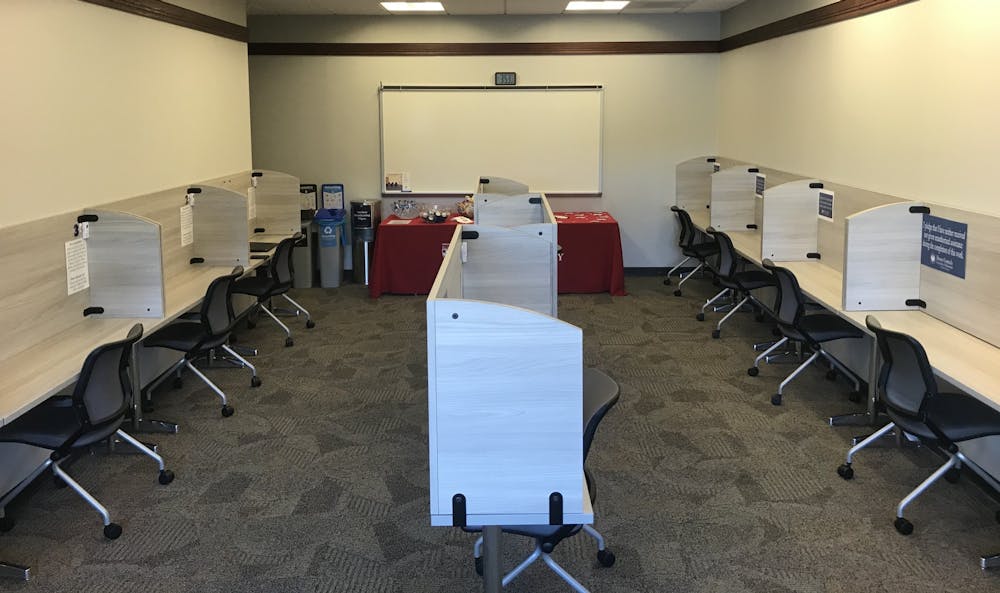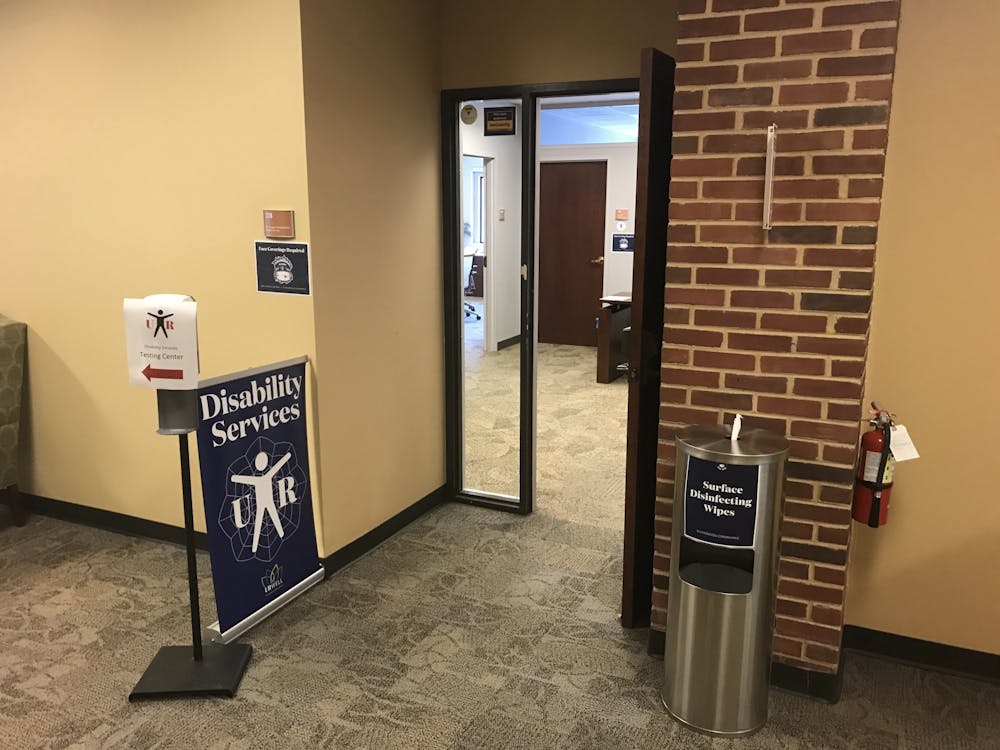Editor’s Note: To respect people who prefer identity-first language and those who prefer person-first language, the language used in the article (e.g. "disabled" or "person with a disability") will reflect both approaches to identity.
University of Richmond Disability Services Director Emily Helft discussed current progress and plans to spread awareness of disability and inclusion at UR during the first Disability Services Open House of the semester on Sept. 2.
The event was open to all students to view the center's spaces and talk with Helft about the main office, located in Tyler Haynes Commons suite 338, and Disability Services Coordinator Julia Kelly about the testing center, located in THC suite 348, according to an Aug. 26 SpiderBytes announcement.
Disability Services will relocate to Boatwright Memorial Library ideally within the next year, Helft said. The new space will include the main office, reception area and testing center all in one location. Helft plans to host an opening event for the new location to continue to welcome students and spread awareness about Disability Services, she said.
The main office is a space for Helft to meet with students and faculty individually about implementing support for students with disabilities through the accommodation request process, she said. The process consists of students working with Helft to identify what barriers exist because of a person’s disability and identifying which accommodations would get rid of those barriers, she said.
Meetings can be scheduled online through the Disability Services page on the UR website.
The testing center is a space where disabled students can take tests comfortably, Kelly said. Kelly oversees the booking for testing center appointments and communicates with professors about how to accommodate students with disabilities through the center, she said.
“Our most common testing accommodation is 50% extra time,” Kelly said. “And so sometimes an instructor will have back to back classes and they're not able to stay after to accommodate that extra time. So we are here as a resource -- an optional resource -- for students and professors to utilize the space in order to accommodate them.”

The testing center opened in Aug. 2020, Helft said. It is open for students who have registered with Disability Services and have been approved for testing accommodations, she said.
About 250 students are approved for these accommodations, but students are not required to use the center. The faculty ultimately decides if a student with approved accommodations would use the testing center or if the professor would choose to proctor the exam with accommodations, such as extra time, she said. The testing center is currently only available for testing, she said.
Students book all appointments online and proctors monitor testing through four video cameras set up in the center in order to reduce distraction, Kelly said. She supervises the testing proctors, who are the newest addition to the staff, she said.
Enjoy what you're reading?
Signup for our newsletter
All three proctors are graduate students in the UR School of Professional and Continuing Studies, Kelly said. The center hired graduate students instead of undergraduate students to protect the privacy of those using the testing center, Kelly said.
The testing center provides students with disabilities a space in which they can take the time they need to work, Johnny Chadoyan, the center’s testing proctor, said.
Helft plans to host open houses each semester or year to give faculty and students the chance to connect and register with the office, she said. Disability Services will offer an additional open house on Family Weekend, which falls on Oct. 1. Further details about these events will be announced via SpiderBytes.
Kelly hopes that the open houses will give students who may feel anxious about using an unfamiliar space a chance to become comfortable with the center and staff, she said.
Disability Services hosted several other awareness events, such as tabling and welcoming events, in order to reduce the stigma around disability through education, she said.
Helft also shared ideas to implement a crossover program with the Academic Skills Center, the Counseling and Psychological Services or other health and wellbeing units. Programs such as test anxiety or midterm preparation workshops could be hosted with these campus services in order to maximize educational outreach, she said.
Students can get involved in the accessibility mission through the Disability Student Ambassadors, Helft said. DSA is a campus organization that consists of students who promote the empowerment and inclusivity of the identity of disability, according to the UR website. The leadership position is currently open to students, Helft said.
Helft also shared additional ways students can get involved with the mission of inclusion and accessibility, such as attending events to better understand disability etiquette or ensuring that student run events are accessible to all. She encouraged students to ask questions if they are looking for more ways to become allies for people with disabilities.
“Every little step you take forward to being more inclusive and making your programming or your events or your friendships and your classes and your interactions with people more accessible -- every step in the right direction counts." Helft said. "No idea or step is too small.”
Contact writer Teresa Rozier at teresa.rozier@richmond.edu
Support independent student media
You can make a tax-deductible donation by clicking the button below, which takes you to our secure PayPal account. The page is set up to receive contributions in whatever amount you designate. We look forward to using the money we raise to further our mission of providing honest and accurate information to students, faculty, staff, alumni and others in the general public.
Donate Now



